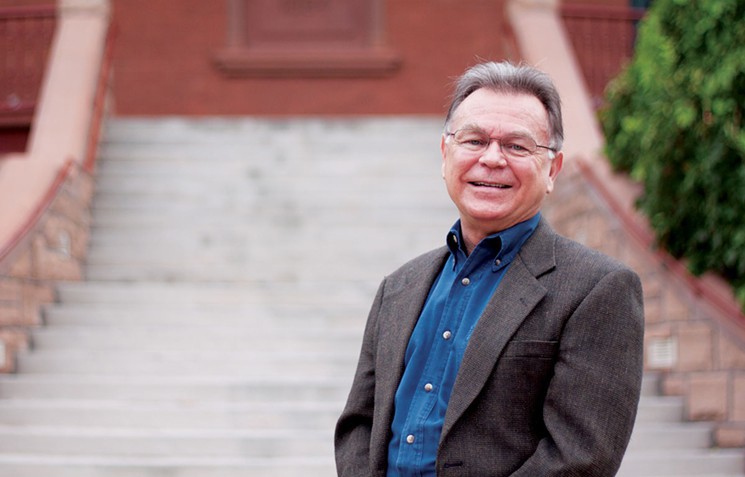The Academy of American Poets has launched the Ambroggio Prize, an annual award given for an unpublished poetry manuscript originally written in Spanish and translated into English by the poet or a translator. The winner will receive $1,000 and publication by Bilingual Press/Editorial Bilingüe at Arizona State University.
The prize will be open for submissions from September 15 through February 15, 2018. Poet Alberto Ríos will judge. Ríos is the state poet laureate of Arizona and had published several poetry collections, most recently A Small Story About the Sky (Copper Canyon Press, 2015).
“We are happy to be working with the Academy of American Poets, which has been honoring artistic excellence in poetry for many decades, on this new prize to celebrate poets in the United States writing in Spanish as an important part of our rich American poetic tradition,” says Luis Alberto Ambroggio, the sponsor of the prize. Jennifer Benka, executive director of the Academy of American Poets, agrees. “We are thrilled to expand our prizes to include one that recognizes the important place the Spanish language has in American culture,” she says.
The prize is the first of its kind in the United States to honor American poets whose first language is Spanish. Spanish is the second most spoken language in the United States, with the 2013 U.S. Census estimating that approximately 38.4 million people—or 13 percent of the population—speak Spanish at home.
The Academy of American Poets administers several other prizes, including the $100,000 Wallace Stevens Award, the $25,000 Academy of American Poets Fellowship, the $5,000 Walt Whitman Prize, and the $5,000 James Laughlin Award. Cosponsor Bilingual Press/Editorial Bilingüe publishes literary works, scholarship, and art books by or about U.S. Hispanics.






